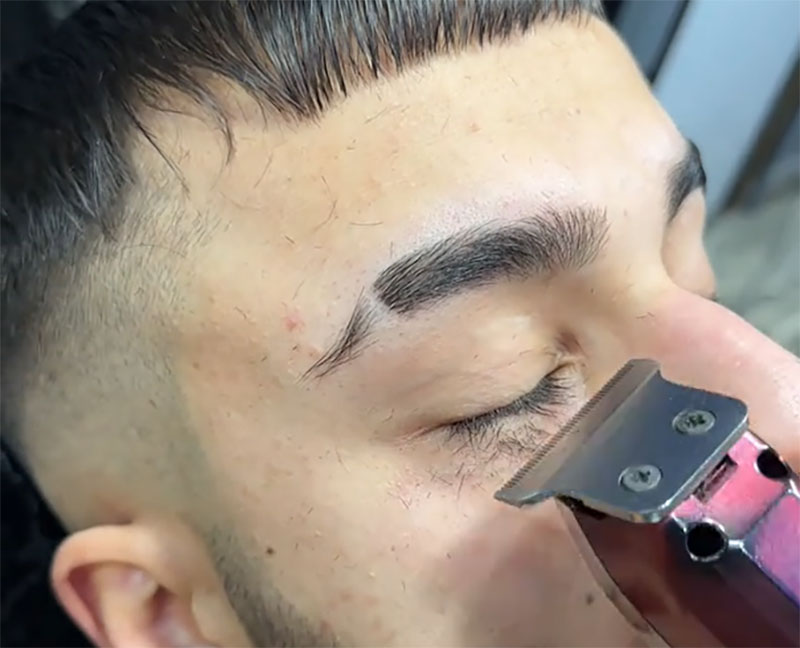
Photo Credit: Getty Images
Once regarded as mere facial flourishes, eyelashes are proving themselves far more valuable than just aesthetic adornments. They block out dust, maintain eye moisture, filter harsh light, and trigger our blink reflex. So, it begs the question—why are some men shaving them off?
In a perplexing turn of beauty trends, men across TikTok, Instagram, and X are taking razors and clippers dangerously close to their eyes to trim or entirely remove their lashes. Their reasoning? To appear "more masculine." This eyebrow-raising movement is gaining traction in barbershops from Turkey to New Zealand. But experts warn that the cost of this cosmetic rebellion could be vision-threatening.
Vickie Lee, an ophthalmic surgeon at Imperial College London, highlighted the health risks, explaining how eyelashes are essential to eye function. Tampering with them may result in irritation or even injury. Cutting lashes improperly can leave sharp stubs that scrape against the eye, and this isn't even factoring in the real risk of a slip with scissors.
Yet, the trend is not merely about aesthetics; it is embedded in a cultural resurgence of hyper-masculine ideals. The so-called "manosphere" and influential voices like Mark Zuckerberg have publicly advocated for a return to masculine energy. Others, like JD Vance, were mocked during election debates for naturally thick lashes, accused of wearing makeup—a symptom of a society increasingly eager to eliminate any features perceived as feminine from male presentation.
Data supports this cultural shift. Following the 2024 U.S. election, surveys revealed a sharp rise in traditional gender attitudes, with more Republican men and women endorsing the idea that masculinity is under threat and that women should return to traditional roles. While these views have not drastically altered societal behavior yet, they reflect a powerful undercurrent in public consciousness.
According to gender studies expert Meredith Jones, features like eyelashes have become symbolic of gender binaries. The longer, thicker lashes embraced by women—especially in the beauty industry—have become so coded as feminine that their removal is now seen by some men as an act of rebellion against modern gender fluidity.
And yet, as trends often do, even this may be cyclical. The 'no mascara' movement among women, though still niche, suggests a broader return to natural appearances may be on the horizon. Still, as long as facial features remain battlegrounds for identity politics, eyelashes will remain curiously political—small but powerful indicators of much larger societal tensions.
















